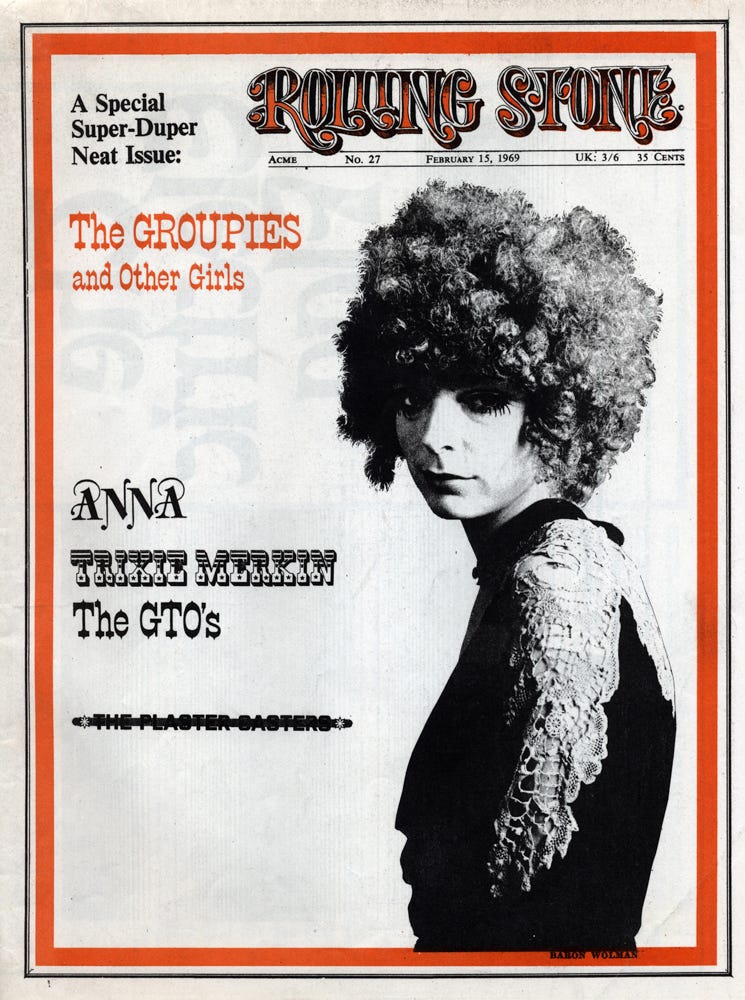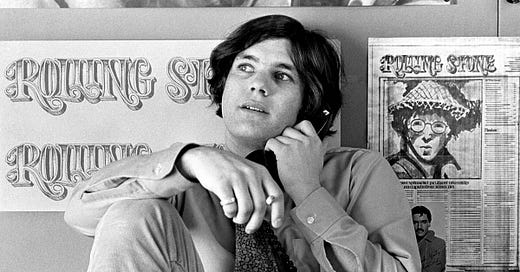Co-founded by Jann Wenner in 1967 with seed money from his parents, Rolling Stone quickly developed a reputation for being the critical authority of rock & roll, almost single-handedly forming the canon that is being celebrated yet again in his new book of interviews, The Masters. But if you ask Wenner, mastery can only come from a particularly narrow background; all seven of the subjects in his book are white men.
Wenner has been under fire since his interview with David Marchese was published in the New York Times on September 15th. When asked why artists like Janis Joplin, Joni Mitchell, Stevie Nicks and Stevie Wonder were not included in his book, Wenner claimed that they didn’t “articulate” on the level of “philosophers of rock” like Mick Jagger and Pete Townshend. Wenner claims that his choices were “intuitive” and not “deliberate,” that they just “fell together that way.”
This is the language of implicit bias; Wenner doesn’t even recognize his unconscious favouritism towards white male artists. What feels natural to him appears to be undeniably specific to the outsider. Earlier in the NYT interview, Wenner mentions having intimate friendships with the musicians featured in his book, a closeness that even had him allowing the subjects to edit the pieces about themselves. It makes one wonder what other culture-defining decisions he made over the decades that were based on his relationships.
Imagine having the temerity to write a book filled with old white men who profited from the innovations of Black people and then calling it The Masters. When Wenner later admitted that he didn’t actually think any woman or Black artist could “measure up to [the] same historical standard” as the white men featured in his book but he “should have gone and found one Black and one woman artist to include… to avert this kind of criticism,” he accidentally said the quiet part out loud. Who created that historical standard in the first place?
This is how many institutions operate, we just don’t often get to hear them admit it. This is the thought process that caused the hip-hop generation to create magazines like Vibe and The Source while their music was mostly ignored by the old gatekeepers. Wenner’s legacy with Rolling Stone involves commodifying and commercializing rock & roll, a Black art form, using an institution that actively worked to separate it from its roots. No one is more responsible for making the world more likely to think of John Lennon and Mick Jagger instead of Bo Diddley and Chuck Berry when it comes to the origins of rock than Jann Wenner.

What do people like Jann Wenner have to gain by perpetuating their chosen history of music? His way of thinking has had broad reverberations. In the first 50 issues of Rolling Stone, only six women were featured on the cover. During the same period, only five Black artists made it. Wenner has long been one of the most influential people in music, chiefly responsible for shaping the misogynistic rock culture that ignored the work of talented women for decades. For his efforts, Wenner was made fabulously wealthy, went on to build the Rock & Roll Hall of Fame in his own image and received unprecedented access to the artists he feted in the magazine’s pages.
In biographer Joe Hagan’s Vanity Fair piece about the controversy, he points out how Wenner’s definition of greatness is merely a personal preference that doesn’t reflect reality:
“With the so-called Masters, Wenner seemed to forget that the world of stars he built up in Rolling Stone—and in the Rock & Roll Hall of Fame—was a personal curation from an era when nobody could question the selection unless they had a bigger, louder bullhorn.”
Thanks to the democratizing power of the internet, we no longer have to take one man’s word as gospel. Gatekeepers like Wenner now have far less utility. Wenner was removed from the board of the Rock & Roll Hall of Fame after the publication of the NYT interview, something that likely wouldn’t have happened before the social media age.
In the interview, Jann Wenner asks if he could be forgiven for past mistakes at Rolling Stone and Marchese responds that it’s not for him to decide. That’s when Wenner says, “History will speak.” If only it were that simple. For a long time, it was up to a handful of people to decide which works would be remembered and which would be forgotten. As we unburden ourselves from the grasp of the Jann Wenners of the world, I hope that the voice of history becomes louder, clearer and more diverse.
I’m featured on pHoenix Pagliacci’s “Politics” which is out this Friday September 29th. It was nice to just get my rap on again. My verse was inspired by some of my experiences inside and outside of the political system in Canada. You can pre-save “Politics” here.
You can find me updating my playlists or hanging on Twitter and Instagram. You can listen to my music on Spotify, Apple Music and Bandcamp and you can get Cadence Weapon merchandise here. Read my monthly column in Hazlitt. Pick up your copy of Bedroom Rapper here and please rate it on Goodreads.








ahhh the Bulworth poster homage! too good.